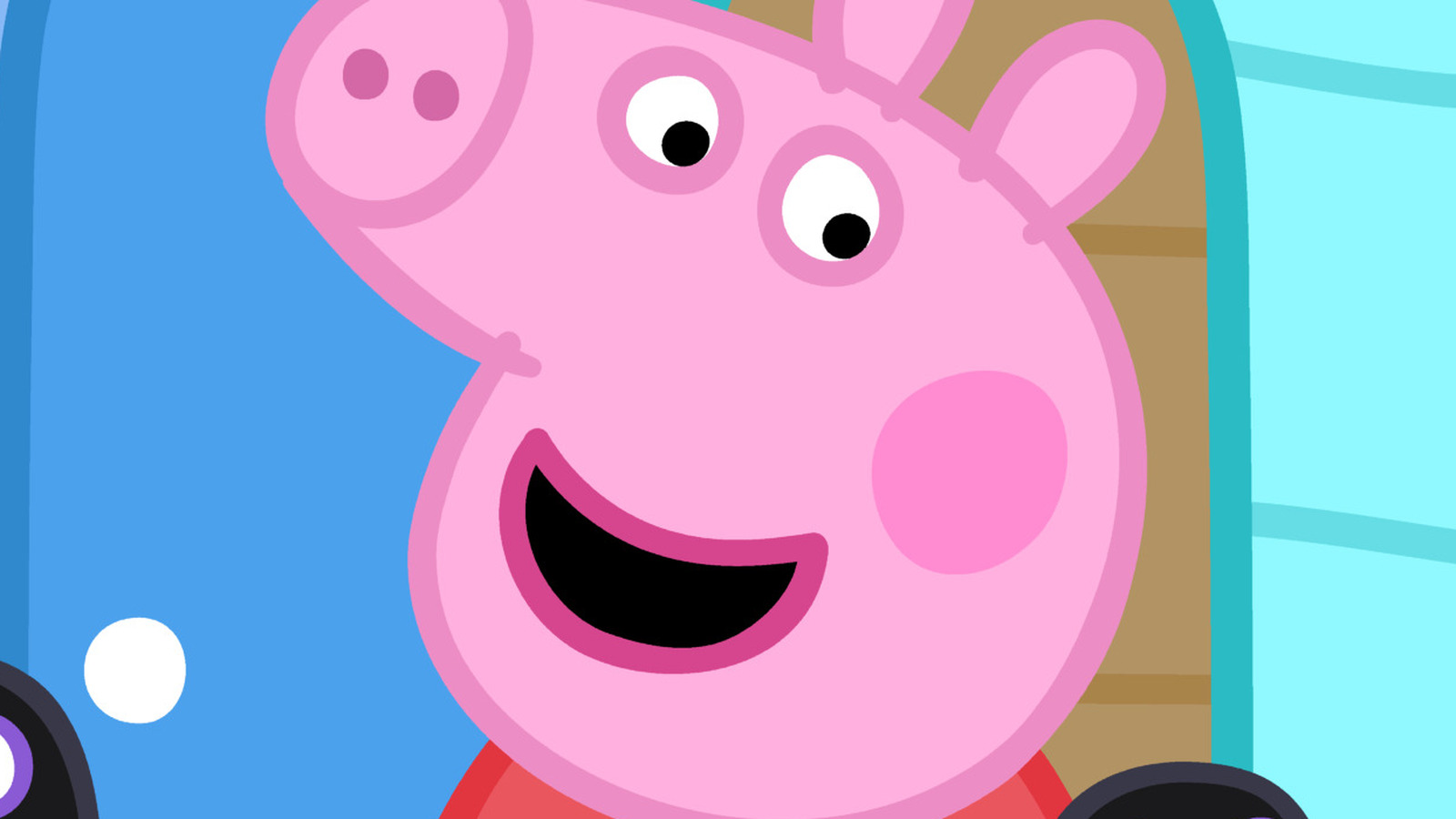Is Your Child A Love Monster? Recognizing And Addressing Aggressive Behaviors

Table of Contents
Understanding Aggressive Behaviors in Children
Identifying the Signs of a "Love Monster"
The term "love monster" paints a picture of a child whose intense love and affection are intertwined with unpredictable aggressive behavior. These children often struggle with emotional regulation, meaning they have difficulty managing their feelings. Their outbursts aren't necessarily malicious; they're often a manifestation of overwhelming emotions like frustration, fear, or even intense love that they don't know how to express appropriately.
Observable behaviors of a "love monster" child might include:
- Physical aggression: Hitting, biting, kicking, pushing, scratching.
- Verbal aggression: Yelling, screaming, name-calling, insulting.
- Tantrums: Intense emotional outbursts involving crying, screaming, and/or throwing things.
- Property destruction: Throwing toys, breaking things, damaging property.
- Defiance: Refusal to follow rules or instructions.
It's crucial to differentiate between typical toddler aggression (which is often a developmental stage) and more concerning patterns. While a bit of hitting or biting is common among toddlers exploring boundaries, persistent, intense, or escalating aggressive behaviors warrant closer attention. These behaviors may be a sign of underlying issues requiring professional guidance.
Underlying Causes of Aggressive Behavior
Understanding the root causes of aggressive behavior is crucial for effective intervention. Several factors can contribute to a child exhibiting "love monster" tendencies:
- Developmental Stage: Toddlers and preschoolers are still developing their emotional regulation skills. Aggressive behavior can be a normal part of this process, albeit challenging.
- Unmet Needs: Children who are tired, hungry, or feeling unwell are more likely to exhibit aggressive behaviors. Addressing these basic needs is often the first step in managing outbursts.
- Frustration Tolerance: Children with low frustration tolerance struggle to cope with delays, restrictions, or unmet desires. This frustration often manifests as aggression.
- Emotional Regulation Difficulties: Many children, particularly those with "love monster" tendencies, lack the skills to identify, understand, and manage their emotions effectively.
- Modeling: Children learn by observing others. If they witness aggressive behavior from adults or siblings, they're more likely to emulate it.
- Underlying Conditions: In some cases, aggressive behavior may be linked to underlying conditions like ADHD (Attention-Deficit/Hyperactivity Disorder), sensory processing disorder, or other developmental delays.
Strategies for Addressing Aggressive Behaviors
Positive Parenting Techniques
Positive parenting focuses on reinforcing positive behaviors while minimizing negative ones. This approach is crucial when dealing with a "love monster" child:
- Positive Reinforcement: Reward positive behaviors with praise, attention, and privileges. This reinforces the desired behavior.
- Ignoring Minor Aggressive Behaviors: Sometimes, ignoring minor aggressive behaviors (if they don't cause harm) can be effective. The child may realize that their actions aren't getting the attention they seek.
- Consistent Discipline: Setting clear boundaries and consistently enforcing rules is vital. Children need to understand what is acceptable and unacceptable behavior.
- Teaching Emotional Regulation: Help your child develop coping mechanisms, such as deep breathing exercises, counting to ten, or using a "calming corner."
- Time-Outs: Time-outs can be a helpful tool, but they should be used appropriately. The goal is to provide a brief period of calm reflection, not punishment.
Communication and Connection
Building a strong parent-child relationship is paramount in managing challenging behaviors.
- Effective Communication: Learn to communicate effectively about feelings. Use "I" statements to express your concerns without blaming.
- Empathy and Validation: Even during aggressive episodes, try to understand and validate your child's feelings. Let them know you understand their frustration.
- Quality Time: Dedicate regular quality time to strengthen your bond. This helps build trust and understanding.
Seeking Professional Help
While many parents can manage "love monster" behaviors with positive parenting strategies, sometimes professional help is necessary.
- When to Seek Help: Seek professional help if behaviors are escalating, causing significant harm, or impacting family life negatively.
- Types of Professionals: Therapists, counselors, and other specialists can provide support, guidance, and tailored interventions.
- Finding Resources: Many online resources and local organizations offer support for parents dealing with challenging child behaviors.
Conclusion
Understanding and addressing aggressive behaviors in children, especially those exhibiting "love monster" tendencies, requires patience, understanding, and a multi-faceted approach. Recognizing the signs, understanding the underlying causes, and implementing effective strategies, including positive parenting techniques, strong communication, and seeking professional help when necessary, are key to navigating this challenge. While "love monster" behavior can be challenging, it's common and manageable with the right approach. Don't let aggressive behaviors define your child. Understand your "love monster," equip yourself with effective strategies, and build a stronger, healthier relationship. Learn more about managing challenging child behavior and overcoming aggressive outbursts in children today!

Featured Posts
-
 The Untold Story Behind Peppa Pigs Name A Surprise For Longtime Fans
May 22, 2025
The Untold Story Behind Peppa Pigs Name A Surprise For Longtime Fans
May 22, 2025 -
 Southern French Alps Storm Brings Unexpected Late Season Snow
May 22, 2025
Southern French Alps Storm Brings Unexpected Late Season Snow
May 22, 2025 -
 Saskatchewans Path A Political Panel Discussion On Western Separation
May 22, 2025
Saskatchewans Path A Political Panel Discussion On Western Separation
May 22, 2025 -
 Mulhouse Un Concert Hellfest Au Noumatrouff
May 22, 2025
Mulhouse Un Concert Hellfest Au Noumatrouff
May 22, 2025 -
 Cest La Petite Italie De L Ouest Architecture Toscane Et Charme Inattendu
May 22, 2025
Cest La Petite Italie De L Ouest Architecture Toscane Et Charme Inattendu
May 22, 2025
Latest Posts
-
 Couple Arrested Following Antiques Roadshow Appearance National Treasure Case
May 22, 2025
Couple Arrested Following Antiques Roadshow Appearance National Treasure Case
May 22, 2025 -
 Antiques Roadshow Appraisal Leads To Arrest For National Treasure Trafficking
May 22, 2025
Antiques Roadshow Appraisal Leads To Arrest For National Treasure Trafficking
May 22, 2025 -
 Couple Arrested Following Antiques Roadshow Stolen Goods Discovery
May 22, 2025
Couple Arrested Following Antiques Roadshow Stolen Goods Discovery
May 22, 2025 -
 National Treasure Trafficking Antiques Roadshow Episode Results In Arrests
May 22, 2025
National Treasure Trafficking Antiques Roadshow Episode Results In Arrests
May 22, 2025 -
 Antiques Roadshow Appraisal Exposes Theft Results In Arrest
May 22, 2025
Antiques Roadshow Appraisal Exposes Theft Results In Arrest
May 22, 2025
